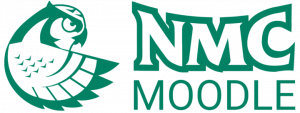ENG220 (Bernstein)
Journals
| Topic | Name | Description |
|---|---|---|
| Week 2: Writing for Your Readers | Week 2 Notebook: The Writing Process -- DUE 9/5 | About Journal Activities: Your journal entries are not formal writing. I need to be able to understand your point, so make sure your writing is reasonably clean in terms of spelling and punctuation. However, your focus is on exploring and explaining your thinking. Unlike Forum activities, your classmates do not see your Journal responses. Be specific; include examples. Write at least 200 words. Assignment: This week you read the Sexy Technical Communication chapter on the writing process. Describe how you feel about composing formal documents at school, at work or in your personal life. Which parts of the process are you most comfortable with and which parts are the most challenging for you? Are there any revising and editing issues that give you trouble? When you write a formal communication at work, at school or in your personal life, are you confident about commas, for example? Do you worry about spelling? Explain. |
| Week 7: Emails, Texts, Memos, and Letters | Week 7 Notebook: Emails vs. Texts -- DUE 10/11 | Email vs. TextEmail and text messages are the most common forms of work communication. However, most workplaces rely heavily on one or the other. At NMC, for example, communication between employees is done almost exclusively via email. In this class however, I try to mostly use text messages, but there are some emails sent through Moodle. The "Remind" app is an attempt to adapt our casual communications with students, but it is neither required nor widely used throughout the college. For this notebook, please write about 200 words describing how internal communication is handled at your current or former workplace. (You don't have to name the employer but do give a general description like restaurant or medical provider.) Explain how you use text, email, or another form of communication. Explain the common practice and policy, discuss how it has evolved (if you know), and comment on how it works (or doesn't work). If communication can improve, perhaps you can offer a suggestion. This assignment is worth 10 points. To earn full credit, compose an entry of at least 200 words with real-life examples. You may use the audio/video recording options ( |
| Week 10: Mock Interview, Perfect Resume & Thank You Letter | Week 10 Notebook: Resume & Mock Interview Reflection -- DUE 11/1 | After the interview, write a 250 word reflection on the interview experience and the experience you had getting help with your resume. Use the questions below to help craft your reflection. If you prefer to record your reflection using the audio or video tools in the editor, that's okay too. Just be sure to answer as many of the questions as possible. Resume Review Reflection Questions:
Mock Interview Reflection Questions:
|
| Week 14: Progress Report #2: Illustrations & Corresponding Components | Week 14 Notebook: Rhetorical Situation -- DUE 12/1 | Watch this short video on the rhetorical situation. Write a notebook entry that explains how you are applying this concept to your final project. Basically, write about 200 words about your theoretical audience. Take a look at my feedback in your first progress report before completing this. If your audience and context was underdeveloped I probably provided some suggestions. Answer the following questions:
|
